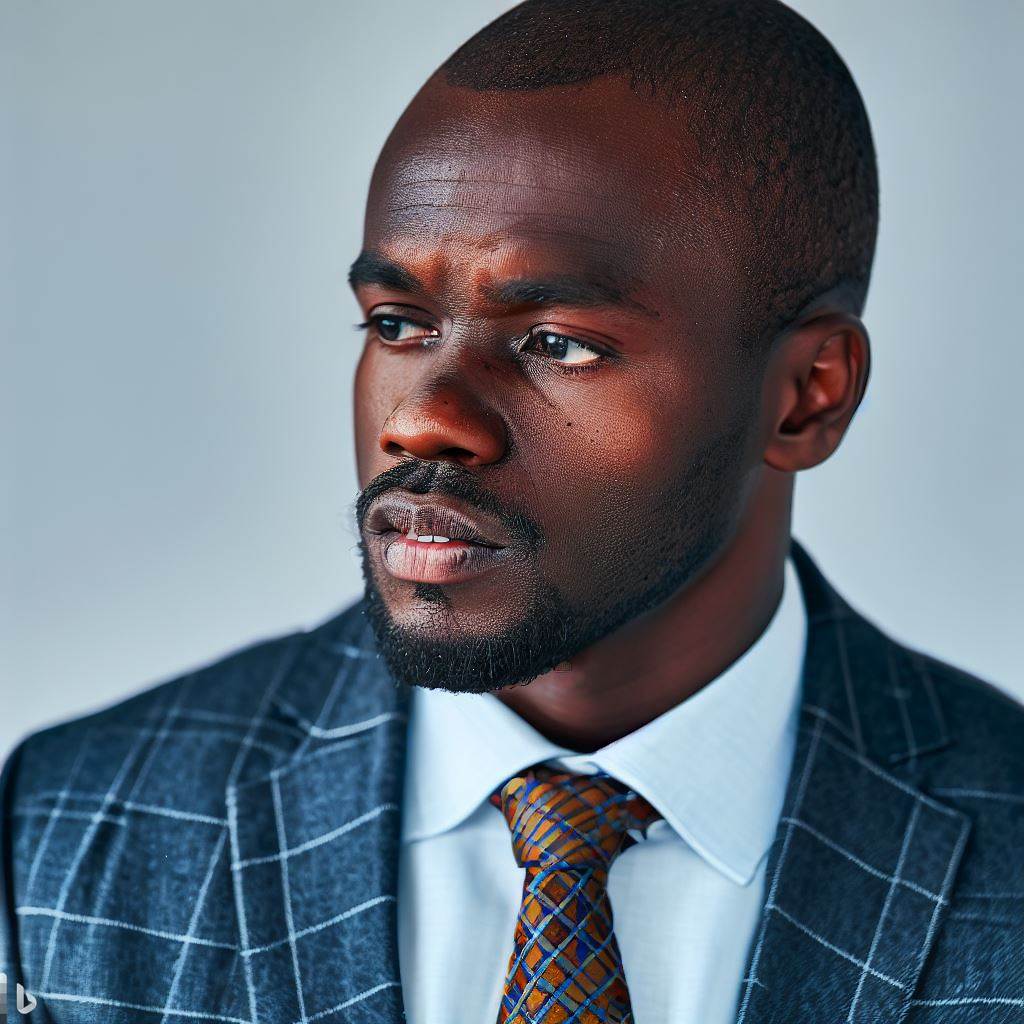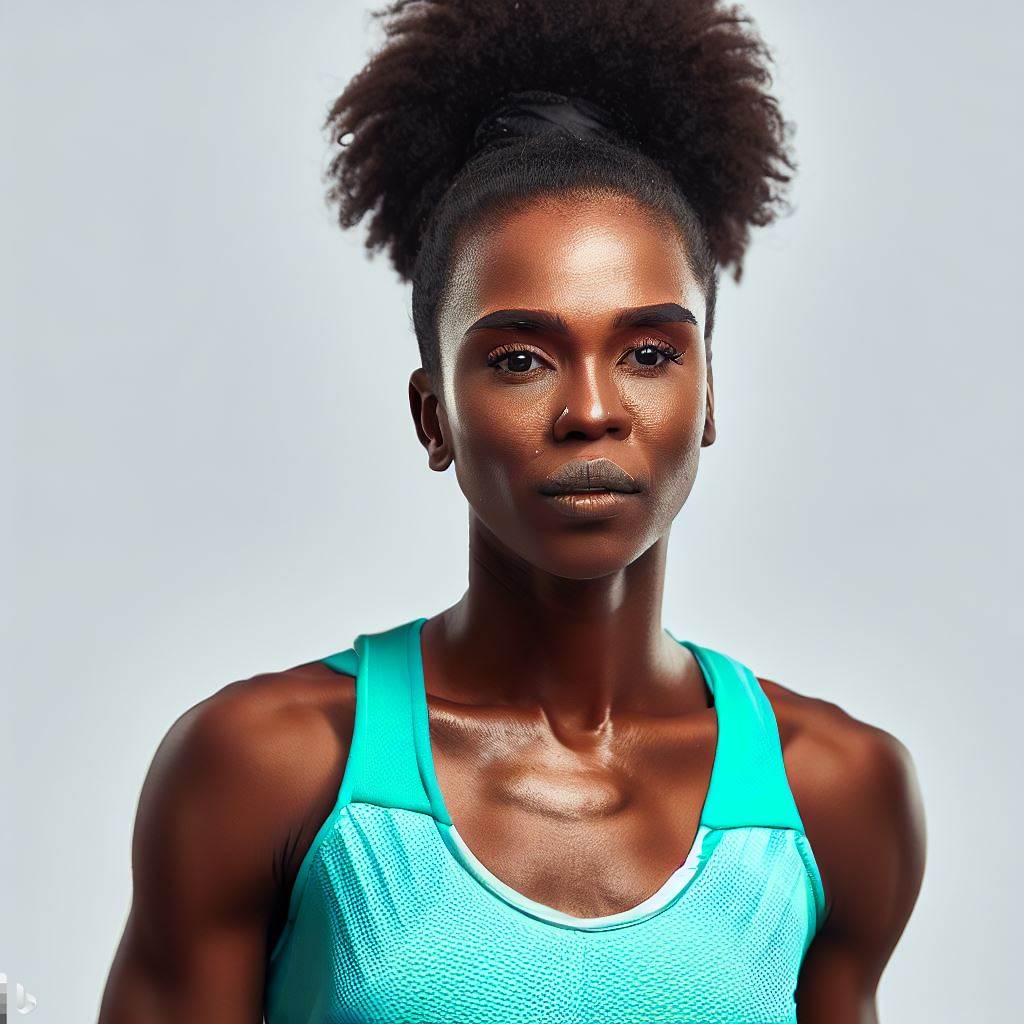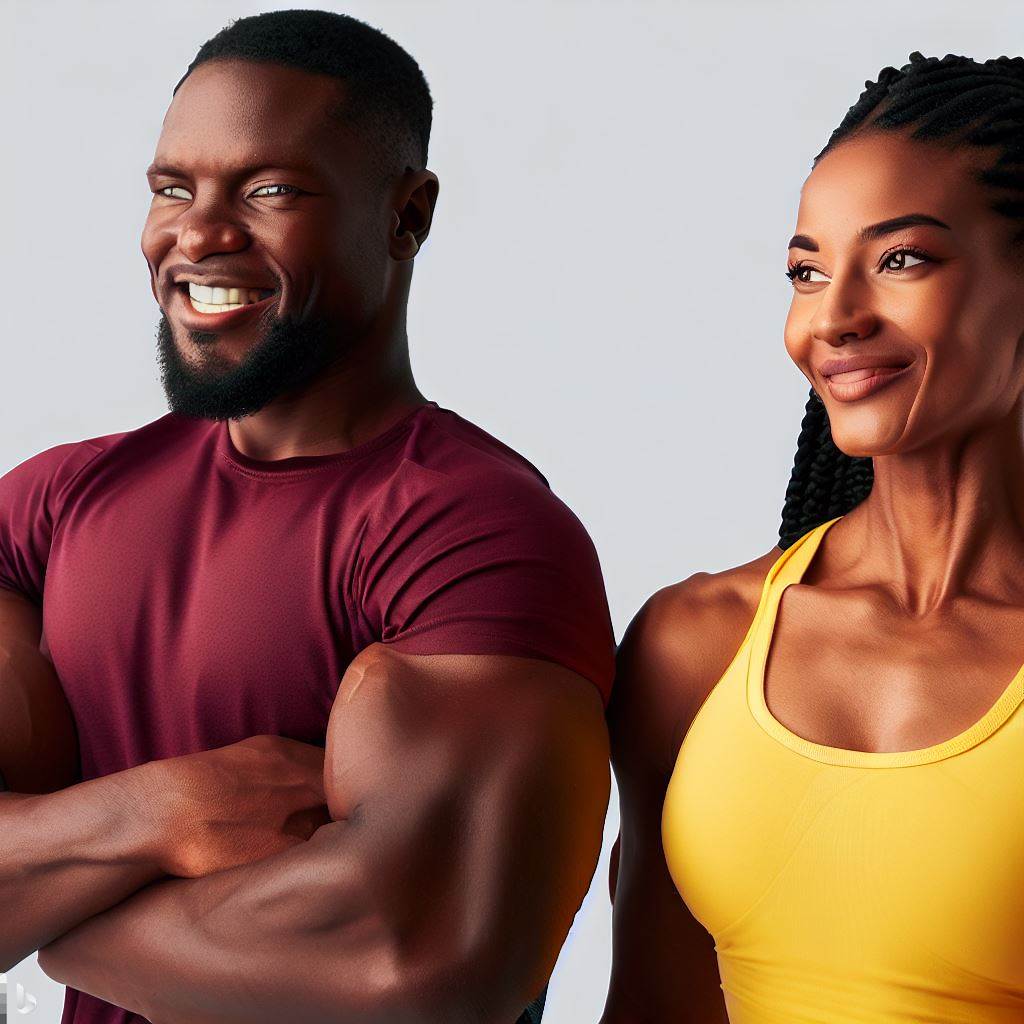Introduction
Let’s talk about sports agent role in Nigeria.
The sports agent profession involves representing athletes and guiding their careers to maximize success.
Sports agents play a vital role in Nigeria by negotiating contracts, marketing athletes, and providing guidance.
They help athletes secure lucrative endorsements, contracts, and manage their day-to-day affairs.
Sports agents are crucial in ensuring fair treatment and financial security for Nigerian athletes.
In a highly competitive sports industry, agents act as advocates for their clients, protecting their interests.
Agents offer their expertise to athletes, assisting them with contract negotiations and legal matters.
They help athletes navigate the complex world of endorsements, sponsorships, and marketing opportunities.
Sports agents help athletes build their brand and image, leading to increased opportunities and recognition.
Agents also help athletes manage their finances, ensuring they make smart financial decisions.
In fact, the role of a sports agent in Nigeria is essential in fostering the success and development of athletes.
Definition and Scope of a Sports Agent
Definition of a sports agent
Sports agents in Nigeria actively represent athletes, coaches, and sports professionals, playing crucial roles in their careers:
- Athlete Representation: Sports agents negotiate contracts, secure endorsements, and foster partnerships for athletes.
- Coaching Advocacy: They also represent coaches, securing contracts and finding suitable coaching positions.
- Diverse Clientele: Sports agents extend their services to sports journalists, commentators, and physiotherapists.
- Contract Negotiation: They actively negotiate favorable contracts to protect their clients’ interests.
- Financial Management: Agents assist in financial planning, budgeting, tax strategies, and investment decisions.
- Endorsements & Sponsorships: They secure brand endorsements and sponsorships, ensuring fair compensation.
- Career Guidance: Agents provide career planning and decision-making support, including transfers and renewals.
- Legal Representation: They collaborate with lawyers to safeguard clients’ rights and handle disputes.
- PR Management: Agents oversee clients’ public image, media interactions, and PR matters.
- Emotional Support: They offer emotional support and guidance, understanding the industry’s pressures.
- Networking: Agents leverage industry connections to create opportunities and build beneficial relationships.
- Continuous Learning: Staying updated with industry trends and regulations is a priority for agents.
- Crisis Handling: Agents manage crises and protect clients’ reputations in times of controversy.
In Nigeria, sports agents are active professionals representing a diverse clientele, actively negotiating contracts, managing finances, securing endorsements, and offering comprehensive career support, legal protection, public relations management, emotional assistance, and crisis management.
Their continuous learning and networking benefit their clients’ success and well-being
Read: Assistant Coaches: A Voice in Nigerian Athletics
Qualities and Skills of a Sports Agent
In order to be a successful sports agent in Nigeria, there are several key qualities and skills that one must possess.
These attributes enable the agent to effectively represent their clients and navigate the complex world of sports business.
Below are some of the most important qualities and skills required:
Strong Negotiation Skills
- A sports agent must possess excellent negotiation skills to secure advantageous contracts and endorsement deals for their clients.
- They should be able to leverage their knowledge and networks to maximize their clients’ financial benefits.
- Agents need to be assertive and persuasive, ensuring that their clients receive fair compensation.
Knowledge of Sports Industry Regulations and Laws
- A good sports agent should have a deep understanding of the rules and regulations governing their respective sports.
- They must stay updated with any changes in these regulations to protect their clients’ interests.
- Knowledge of contract law and specific regulations within the Nigerian sports industry is crucial.
Effective Communication Abilities
- Communication is a vital skill for a sports agent, as they act as the intermediary between their clients and teams/sponsors.
- Agents need to communicate clearly and persuasively to negotiate contracts and effectively advocate for their clients.
- Being an excellent listener is equally important, as it helps agents understand their clients’ needs and concerns.
Understanding of Market Trends and Player Values
- A successful sports agent must stay informed about trends and developments in the sports market.
- Knowing the value of players and being able to assess their potential is crucial for negotiating contracts.
- By monitoring market trends, agents can strategically position their clients for better opportunities.
Building and Maintaining Relationships with Athletes and Teams
- A sports agent should be skilled at building and nurturing relationships with athletes and teams.
- Agents must establish trust and maintain open lines of communication with their clients, ensuring a strong partnership.
- Building connections with teams and influential individuals in the sports industry can lead to more opportunities for their clients.
Most importantly, being a sports agent in Nigeria requires a combination of strong negotiation skills, knowledge of industry regulations, effective communication abilities, understanding of market trends, and the ability to build and maintain relationships.
These qualities and skills are essential in successfully representing athletes and navigating the competitive sports industry.
Read: Mentorship from an Assistant Coach: A Nigerian Tale

Career Path and Education
When it comes to pursuing a career as a sports agent in Nigeria, there are specific educational requirements that one must meet.
Basically, obtaining relevant degrees or certifications and building a strong network in the sports industry are crucial for career advancement and specialization.
Educational Requirements for Becoming a Sports Agent in Nigeria
- Obtaining a bachelor’s degree in sports management, business administration, or a related field is highly recommended.
- Proficiency in relevant subjects such as contracts and negotiation, sports law, marketing, and finance is essential.
- Gaining practical experience through internships or working with established sports agencies is beneficial.
- Educational courses or programs specifically tailored to sports agent roles can provide in-depth knowledge and skill development.
Relevant Degrees or Certifications
- A bachelor’s degree in sports management provides a solid foundation for understanding the sports industry.
- A master’s degree in sports management or a related field can enhance career prospects and expertise.
- Obtaining certifications such as the FIFA Players’ Agent License or other sports management certifications can boost credibility.
- Continuous learning and staying updated with industry trends through workshops and seminars are advantageous.
Opportunities for Career Advancement and Specialization
- With experience and a proven track record, sports agents can advance to senior or executive positions within sports agencies.
- Specializing in specific sports or athlete representation can open doors to niche markets and higher-profile clients.
- Expanding services to include endorsement deals, marketing, or event management can diversify career opportunities.
- Building a reputation for integrity, professionalism, and success can lead to partnerships with international agencies or sporting organizations.
Importance of Building a Network in the Sports Industry
- Networking is crucial for a sports agent to establish connections with athletes, coaches, teams, and other industry professionals.
- Attending sporting events, conferences, and industry gatherings fosters relationships and potential client opportunities.
- Maintaining a strong online presence through social media and professional platforms can significantly broaden one’s network.
- Collaborating with sports organizations, universities, and talent agencies can provide valuable referrals and endorsements.
In review, to pursue a successful career as a sports agent in Nigeria, acquiring the necessary education, degrees, or certifications is vital.
Building a strong network within the sports industry and continuously seeking opportunities for career advancement and specialization are equally important.
With determination, expertise, and a robust network, sports agents can thrive in this dynamic and competitive field.
Read: Cultural Insights: Assistant Coaching in Nigeria
Steps Involved in Representing an Athlete
Sports agents follow five crucial steps in representing athletes:
- Identifying Potential Clients: Agents scout talented athletes at games and events.
- Contract Negotiations and Legal Matters: Agents negotiate contracts, securing favorable terms and handling legal issues.
- Marketing and Endorsements: They promote athletes to secure marketing and endorsement deals.
- Financial Management and Investment Advice: Agents guide athletes in budgeting, taxes, and investments.
- Career Guidance and Mentorship: They mentor athletes, aiding decisions and managing their careers.
Identifying potential clients is the initial step, involving talent scouting at sports events.
Once prospects are identified, the agent proceeds to negotiate contracts, ensuring favorable terms and managing legal matters that may arise.
Marketing and endorsements are pivotal, with agents actively promoting athletes to secure lucrative deals.
This entails creating strategies, attending sponsor meetings, and negotiating endorsements aligned with the athlete’s values.
Financial management and investment advice are integral, with agents guiding athletes in budgeting, tax planning, and investment decisions to ensure long-term financial stability.
Lastly, agents provide career guidance and mentorship, aiding athletes in critical decisions like team selection, media relations, and image management.
The agent’s industry knowledge aids athletes’ professional journeys.
In summary, representing athletes involves five active steps: identifying prospects, negotiating contracts, securing endorsements, offering financial guidance, and providing career mentorship.
Agents play a pivotal role in shaping athletes’ careers and ensuring their long-term success.
Read: Tools of the Trade: Athletic Trainers in Nigeria Share
Challenges and Opportunities for Sports Agents in Nigeria
Listed below are some challenges and opportunities faced by sports agents in Nigeria:
Limited sports infrastructure and resources
One of the major challenges for sports agents in Nigeria is the limited sports infrastructure and resources available.
Many sports facilities in Nigeria are poorly maintained and lack modern equipment, making it difficult for agents to train and develop talented athletes.
Cultural considerations in athlete representation
Nigeria is a culturally diverse country with several ethnic groups and languages. Sports agents must navigate these cultural considerations when representing athletes from different backgrounds.
Understanding cultural nuances and values is crucial for successful athlete-agent relationships.
Potential for growth in Nigeria’s sports industry
Despite the challenges, there is a vast opportunity for growth in Nigeria’s sports industry.
Nigeria has a large population of young, talented athletes who are eager to excel in their respective sports.
Sports agents can tap into this potential by identifying and nurturing talent at the grassroots level.
Leveraging digital platforms for increased visibility
In today’s digital age, sports agents can use various digital platforms to increase the visibility of their clients.
Social media, websites, and online sports platforms provide agents with a global reach, allowing them to showcase their athletes’ skills and attract potential sponsors and endorsement deals.
In general, sports agents in Nigeria face numerous challenges, including limited infrastructure, cultural considerations, and poor resources.
In essence, there are also significant opportunities for growth in Nigeria’s sports industry, especially by leveraging digital platforms for increased visibility.
Despite the challenges, sports agents can play a vital role in discovering and nurturing talented athletes in Nigeria.
Success Stories of Nigerian Sports Agents
Nigerian sports agents have made strides, impacting sports development by representing athletes. Here are notable success stories:
- John Obi Mikel: His agent secured Chelsea transfer and endorsements, making him a global superstar.
- Blessing Okagbare: Her agent secured sponsorships, allowing her to focus on international competitions.
- Kelechi Iheanacho: His agent negotiated a transfer to Manchester City and attracted European clubs’ interest.
- Divine Oduduru: With an agent, he excelled in international competitions, gaining global recognition.
Sports agents enhance financial stability and global exposure for Nigerian athletes.
They attract endorsements and sponsorships, aiding skill development and representing Nigeria effectively.
Essentially, agents contribute to Nigeria’s sports growth by securing foreign club transfers and inspiring aspiring athletes.
Sports agents’ role is crucial, facilitating professionalization and commercialization in Nigerian sports.
They navigate complex contracts, maximize earnings, and secure athletes’ futures. These success stories showcase their invaluable contributions to Nigerian sports.
Conclusion
Lastly, sports agents play a vital role in Nigeria’s sports industry.
They serve as intermediaries between athletes and clubs, negotiating contracts and securing lucrative deals.
The significance of sports agents cannot be overstated.
They not only ensure the welfare and financial stability of athletes but also contribute to the growth and development of Nigerian sports.
Aspiring sports agents should be encouraged to pursue their passion in this field.
With dedication, knowledge, and networking skills, they can make a significant impact in the lives of athletes and the sports industry as a whole.
Ultimately, sports agents have the potential to positively influence and contribute to Nigerian sports development.
By identifying and nurturing young talents, they can help in creating a pipeline of skilled athletes for national and international competitions.
When all is said and done, the role of sports agents in Nigeria is crucial for the success of athletes and the overall development of sports in the country.
Their work is essential in ensuring the growth, prosperity, and recognition of Nigerian athletes on a global scale.




